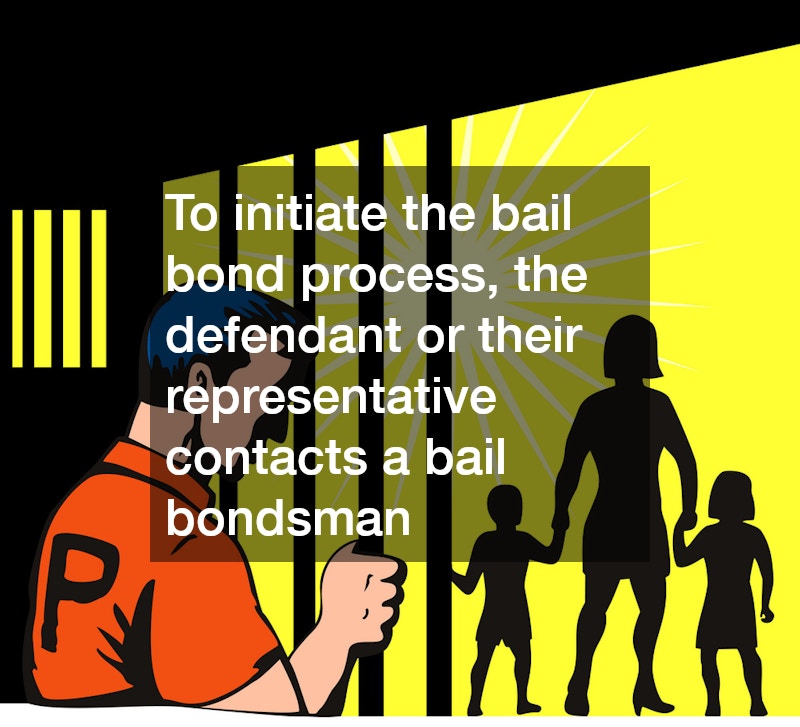When an individual is arrested, the court typically sets a bail amount to ensure the defendant’s return for trial. This bail amount acts as a security deposit that the defendant must pay to gain temporary freedom until their court date. However, not everyone can afford to pay this amount upfront, which is where bail bonds come into play.
A bail bond is a surety bond provided by a bail bondsman or bail agent. This professional guarantees the court that the defendant will appear on their trial dates.
In exchange for this service, the defendant or their family typically pays the bail bondsman a non-refundable fee, usually 10% of the total bail amount.
The bail bondsman’s role is crucial in ensuring the legal process moves smoothly. If the defendant fails to appear in court, the bail agent may be responsible for paying the full bail amount. This scenario puts significant pressure on bail bondsmen to ensure compliance with the court’s requirements.
The Process of Obtaining a Bail Bond
To initiate the bail bond process, the defendant or their representative contacts a bail bondsman. This step often involves signing a contract and discussing the financial and legal obligations associated with the bail bond arrangement. The bail bondsman assesses the risk of the defendant not appearing in court and may require collateral to secure the bond.
Collateral can be in the form of valuable assets, such as property or vehicles, which can be seized if the defendant skips bail. The bail bondsman thoroughly evaluates the situation and person involved before proceeding. Once satisfied, the bail bondsman posts the bail bond at the court, facilitating the defendant’s release from custody.
It’s essential to understand that the bail bond process can be intricate and requires careful attention to detail. The bail bondsman must ensure all documentation is accurate and submitted promptly. Delays or errors can result in prolonged detention periods for the defendant, underscoring the importance of selecting an experienced bail bondsman.
Roles and Responsibilities of a Bail Bondsman
The primary responsibility of a bail bondsman is to serve as an intermediary between the defendant, the court, and the legal system. They take on the financial risk associated with the defendant’s potential failure to appear in court. Therefore, bail bondsmen play a pivotal role in securing the defendant’s temporary release while safeguarding the interests of the judicial process.
In addition to posting bail, a bail bondsman is responsible for tracking the defendant’s court appearances. They often remind or ensure the defendant adheres to their legal obligations. This accountability helps prevent the forfeiture of bail money, which would otherwise become a financial burden on the client or the agent themselves.
Bail bondsmen are also responsible for addressing situations where a defendant fails to appear in court. If a defendant skips bail, the bail bondsman may hire a bounty hunter to locate and return the individual to authorities. The bail process highlights the crucial and multifaceted role that bail bondsmen play in the criminal justice system.
The Legal and Financial Implications of Bail Bonds
Utilizing bail bonds comes with both legal and financial implications that defendants and their families must consider. The non-refundable fee paid to the bail bondsman, though a fraction of the total bail, represents a financial commitment. Additionally, collateral used to secure the bond may be at risk if the defendant fails to comply with court requirements.
Legally, entering into a bail bond agreement legally binds both the bail bondsman and the defendant to fulfill their respective roles. For the defendant, this means appearing in court as scheduled and adhering to any conditions set by the court or the bail agreement. A breach of these terms can result in severe consequences, including arrest and financial losses.
The bail bondsman also faces legal exposure and must operate within state regulations governing bail services. Failure to adhere to these standards can lead to fines, loss of license, or legal action. Understanding these implications underscores the gravity of engaging with a bail bondsman and the justice system.
Bail bonds remain an integral component of the criminal justice system, enabling defendants to maintain their freedom while awaiting trial. The services provided by bail bondsmen help balance the legal system’s demands with the need for defendants’ rights. By facilitating pre-trial release, bail bondsmen play a valuable role in enabling individuals to prepare for their court proceedings.
As legal and financial entities, bail bondsmen help streamline the bail process, ensuring defendants meet their obligations without overburdening their finances. Despite the potential risks, for many, bail bonds present the only feasible solution to secure release from custody. It emphasizes the bail bondsman’s necessity and expertise in navigating the complexities of legal compliance.
In summary, understanding how bail bonds work is crucial for anyone interacting with the criminal justice system. From providing financial assistance to ensuring legal compliance, bail bondsmen are indispensable professionals. Their role bridges the gap between freedom and judicial obligation, lending support to those in difficult situations.

